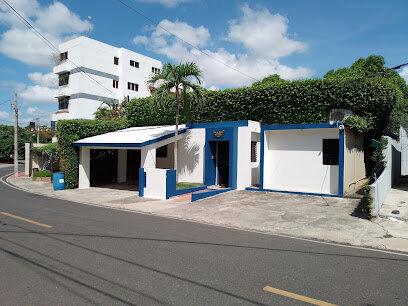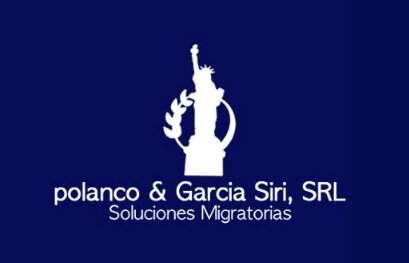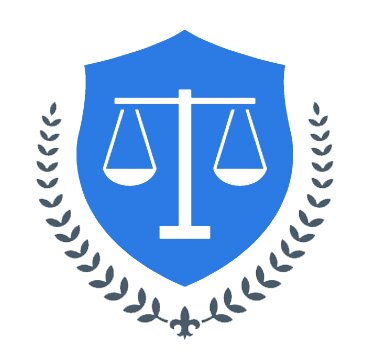Best Native People Lawyers in Santiago de los Caballeros
Share your needs with us, get contacted by law firms.
Free. Takes 2 min.
List of the best lawyers in Santiago de los Caballeros, Dominican Republic
About Native People Law in Santiago de los Caballeros, Dominican Republic
The Dominican Republic is home to a unique blend of cultures, influenced by Indigenous peoples, African and European heritage. In Santiago de los Caballeros, the second largest city in the country, residents often recognize their historical roots but Indigenous communities, such as the Taino, no longer exist as distinct political groups. However, many people retain aspects of Taino heritage and cultural identity. Issues related to Native People in the Dominican Republic therefore often center around cultural recognition, ancestral land claims, heritage protection, and the safeguarding of traditional practices.
Legal matters that touch on Native People in Santiago involve historical land occupancy, ancestral heritage, cultural preservation, and, occasionally, human rights. While there are not officially recognized Indigenous territories today, debates about Indigenous identity, land use, and cultural contributions remain relevant in both legal and social contexts.
Why You May Need a Lawyer
It is important to understand when legal assistance may be necessary for issues pertaining to Native People in Santiago de los Caballeros. Common situations include:
- Cultural heritage protection - legal support to prevent the misuse or misappropriation of ancestral symbols, artifacts, or sites.
- Land and property disputes - navigating the complexities of land titles that may have origins in pre-colonial or colonial times.
- Research and documentation - ensuring that studies or publications involving Native heritage are carried out ethically and with proper consent.
- Human rights advocacy - defending against any discrimination or ensuring respect for the cultural identity of those with Indigenous roots.
- Formal recognition processes - guidance on seeking acknowledgement of heritage, representation in community affairs, or asserting cultural rights.
- Compliance with local and international laws concerning the protection of cultural property and intangible heritage.
Legal assistance can help you understand your rights, gather documentation, and present your case effectively before authorities or courts.
Local Laws Overview
The legal framework in the Dominican Republic for Native People mainly stems from the national constitution and ratified international agreements. The constitution recognizes the multicultural heritage of the nation but does not grant formal special legal status or territorial rights to Indigenous groups. Instead, the following aspects are most relevant:
- The Dominican Constitution guarantees equal rights and protection for all citizens, regardless of ancestry or cultural background.
- Heritage and cultural property laws protect historical sites, artifacts, and traditions, with penalties for unauthorized excavation or sale.
- The country has ratified international treaties such as UNESCO conventions that focus on the protection of cultural heritage, which indirectly benefit those advocating for Indigenous recognition.
- Land and property rights in Santiago are governed primarily by the national Civil Code, which considers documented ownership but has limited mechanisms for recognizing ancestral tenure.
- Anti-discrimination laws provide avenues for redress if individuals feel discriminated against on the basis of cultural or ancestral heritage.
Although not comparable to systems in countries with large recognized Indigenous populations, these laws offer some protection for Native heritage and cultural rights.
Frequently Asked Questions
Are there recognized Indigenous communities in Santiago de los Caballeros?
Currently, there are no formally recognized Indigenous communities or territories in the city or the wider country. However, many people identify with Native heritage, especially Taino ancestry.
Can I claim property based on ancestral or Indigenous roots?
Land and property claims in the Dominican Republic rely on existing legal documents and registries. Ancestral claims without formal documentation are difficult to establish in court.
How can I protect a cultural site related to Native People?
Sites of historical importance are protected by heritage laws. If you are aware of a site at risk, you can contact the Ministry of Culture and seek legal assistance to place it under official protection.
What legal rights do people with Native heritage have?
They have the same rights as any Dominican citizen, including equal protection, freedom from discrimination, and the right to practice and share cultural traditions within the law.
Are there special government programs for Native People in Santiago?
No dedicated government programs exist for Indigenous communities, but there are cultural and educational initiatives that celebrate Taino and other heritage.
Can I use Indigenous symbols or names in my business?
You should ensure that your use is respectful and does not infringe on cultural heritage protection laws or existing trademarks. Legal advice is recommended to prevent misuse.
How can I get recognition for my Native roots?
While there is no formal governmental recognition process for Indigenous status, you can participate in cultural associations and heritage organizations to celebrate and promote your ancestry.
What should I do if I encounter discrimination due to my heritage?
You can file a complaint with human rights or anti-discrimination authorities and seek legal counsel to ensure your rights are protected.
Is it possible to reclaim artifacts or ancestral remains?
This is a complex legal process that may involve the Ministry of Culture, international treaties, and legal proceedings. Specialized legal help is important in these cases.
How can I make sure my research or publication on Native People complies with the law?
Always obtain the necessary permissions, respect privacy and cultural protocols, and consult a lawyer to ensure compliance with local and international regulations.
Additional Resources
If you need more information or assistance, consider these resources:
- Ministry of Culture - Responsible for heritage protection, cultural programs, and preservation of historical sites.
- Dominican Institute of Anthropology - Offers research and documentation regarding cultural and historical heritage.
- Human Rights Ombudsman (Defensor del Pueblo) - Provides support for discrimination claims and human rights violations.
- Local universities (such as Universidad Autónoma de Santo Domingo, UASD) - Some offer legal clinics and cultural studies departments that engage with heritage issues.
- Community cultural associations - Groups that promote and preserve Taino and other Native heritage.
Next Steps
If you believe you need legal assistance related to Native People in Santiago de los Caballeros, consider the following steps:
- Gather all relevant documents and information related to your issue, such as property deeds, historical records, or examples of cultural symbols.
- Identify which aspect of law your matter concerns - such as property law, heritage protection, or human rights.
- Reach out to an experienced lawyer who has handled similar cases or specializes in cultural and heritage law.
- Consult with relevant local organizations, such as the Ministry of Culture or local cultural associations, to get background or specific support.
- Prepare for your legal consultation with clear questions and objectives so that your lawyer can give you tailored advice.
By taking these steps, you will be well positioned to protect your interests and contribute to the recognition of Native heritage in Santiago de los Caballeros.
Lawzana helps you find the best lawyers and law firms in Santiago de los Caballeros through a curated and pre-screened list of qualified legal professionals. Our platform offers rankings and detailed profiles of attorneys and law firms, allowing you to compare based on practice areas, including Native People, experience, and client feedback.
Each profile includes a description of the firm's areas of practice, client reviews, team members and partners, year of establishment, spoken languages, office locations, contact information, social media presence, and any published articles or resources. Most firms on our platform speak English and are experienced in both local and international legal matters.
Get a quote from top-rated law firms in Santiago de los Caballeros, Dominican Republic — quickly, securely, and without unnecessary hassle.
Disclaimer:
The information provided on this page is for general informational purposes only and does not constitute legal advice. While we strive to ensure the accuracy and relevance of the content, legal information may change over time, and interpretations of the law can vary. You should always consult with a qualified legal professional for advice specific to your situation.
We disclaim all liability for actions taken or not taken based on the content of this page. If you believe any information is incorrect or outdated, please contact us, and we will review and update it where appropriate.













